How to use coffee grounds in gardening – the hacks that work
How to use coffee grounds in plants, how to use coffee grounds in the garden, how to use coffee grounds in gardening ndash the hacks that save time, how to lower blood pressure, how to use coffee grounds to remove odors, how to use coffee grounds for plants, how to use coffee grounds in gardening ndash the hacks that are safe, how to use coffee grounds in gardening ndash the hacks cast, how to use coffee grounds in soil, how to use coffee grounds in house plants, how to use coffee grounds in potted plants, how to use coffee grounds in gardening ndash the hacks that work, how to use coffee grounds in house plants, how to use coffee grounds in yard.
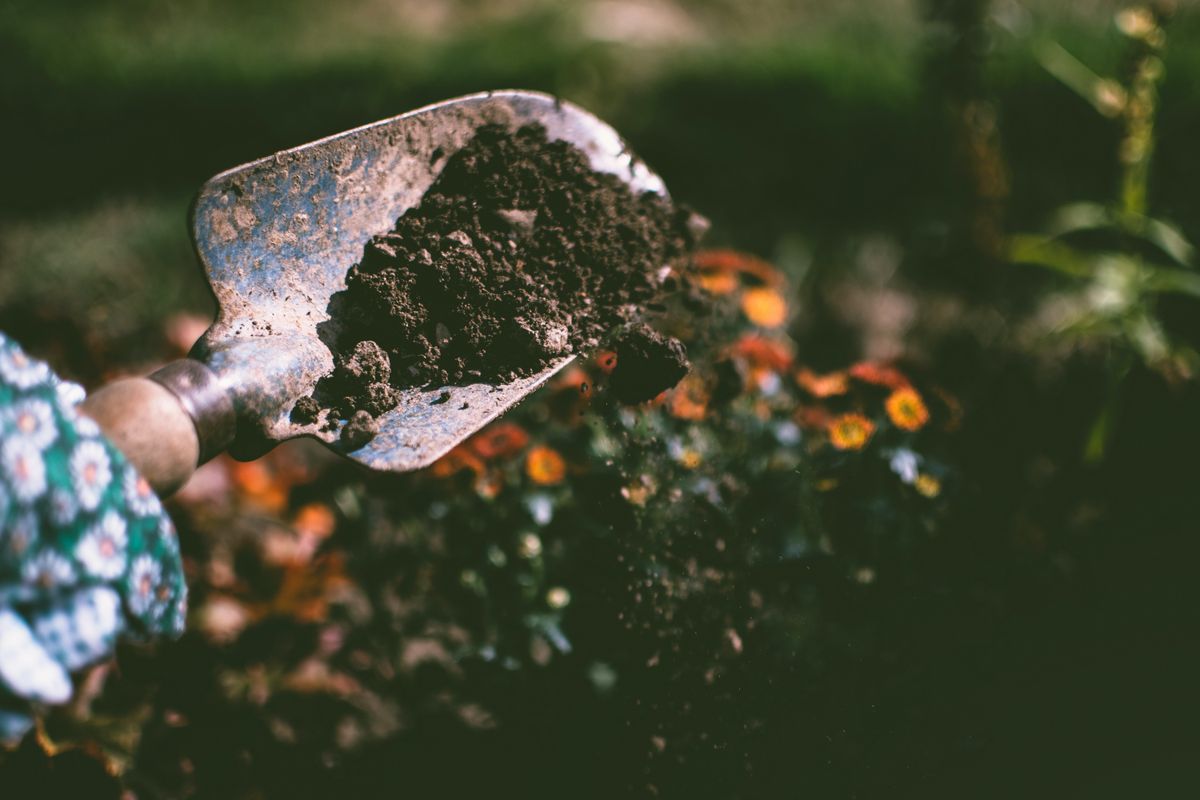
You've probably heard all near using coffee grounds in gardening. But does using coffee actually work, and if so, how do you use coffee grounds correctly, for maximum benefit to your soil and plants?
You've put your best coffee maker to good use – now, find out how to make the most of your coffee demolish while gardening. When figuring out how to use coffee grounds in the garden, make sure you concentrate your efforts on the garden hacks that are really useful – and avoid those that have been well-liked to be myths.
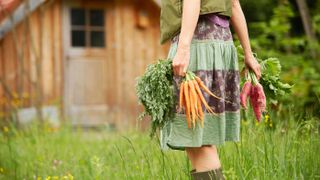
(Image credit: Getty Images)
1. Make your own fertilizer for plants
You can design your own fertilizer from coffee grounds, saving the expense of buying a commerce version. Fertilizers are used to provide a source of nutrients for plants and loan their growth and, even if your soil is healthy, they could result in a better display from flowering plants and a bigger choice in kitchen gardens.
Coffee grounds contain many of the nutrients commonly fraudulent in plant fertilizer. According to coffee expert Lewis Spencer of Coffee-Direct.co.uk, 'coffee grounds have a varied amount of critical nutrients in each batch, but they all contain nitrogen, potassium and phosphorus alongside micronutrients.'
There won't be a huge amount of these nutrients in the coffee grounds – far less than the concentrations fraudulent in commercially produced fertilizer – but this can be a good sketch, as a slow release of nutrients is actually better for a healthy garden than a huge dose all at once.
According to Spencer, 'plants such as carrots, azaleas and roses would appreciate a nice boost from coffee grounds.'
There are some plants, however, coffee grounds are not suitable. This isn't because coffee grounds acidify soil (this is a myth), but because applying coffee grounds straight to the soil can inhibit seedlings from growing. This seems to be especially true of tomato seedlings, so avoid using coffee grounds if you're growing tomatoes.
You can make your own aquatic plant fertilizer by filling a bucket with 5 gallons of liquid and mix in two cups of brewed coffee grounds. Leave overnight before using.

(Image credit: Fahmi Ariza on Unsplash)
2. Use coffee grounds in compost
Coffee grounds are qualified for use in compost; in fact, composting yours is far better for your garden than putting them straight on your veggie beds. One of the main benefits of compost in your garden is opening up the soil structure, which aids aeration and microbial exchange.
If you know how to make compost then you'll know that it's made Funny both brown ingredients – that's things like dried leaves, twigs, and newspaper – and green materials, including grass clippings and dead flowers.
Coffee grounds can contribute to its green ingredients. Add the filter paper, too – only if it's unbleached – which can be part of the mix and using you'll be generating even less household waste.
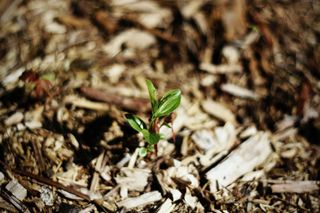
(Image credit: Maddy Baker on Unsplash)
3. Add coffee grounds to mulch
Using mulch in the garden has an array of advantages. Mulching is one of the best ways to kill weeds naturally by inhibiting their growth. It can help the soil retain water, which protects the roots from drying out and can help protecting plants from frost.
Mix the coffee grounds with new organic matter such as leaf mold. In this way, you'll gash the risk of clumps which could stop the aquatic from reaching plant roots. Make sure you don't use a thick layer either because plants could be sensitive to the caffeine in the grounds.
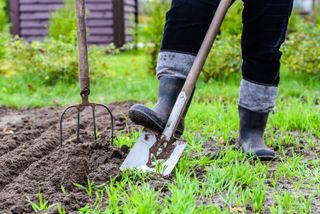
(Image credit: Shutterstock )
4. Feed worms with coffee grounds
Worms, or at least the sort that you'd use in a wormery, are fans of coffee grounds, it seems. If you're are a vermicomposter – or like the idea of becoming one – coffee grounds can be part of the kitchen raze you add to your worm bin.
Vermicomposting employs the skills of sure types of worm to turn scraps from the kitchen downward with other green waste into both compost rich in nutrients and aquatic fertilizer.
You can add a cup of coffee grounds a week to a exiguous worm bin. Make sure you never put in too much at one time, notion, as the acidity could be a problem. Oh, and you can add the paper filter as well. Neat.
Which vegetable plants in sure like used coffee grounds and why?
'As coffee grounds are terminate to pH neutral, acid-loving vegetable plants will benefit the most. This is because the grounds lead to better choice by providing extra nutrients. Cabbage, carrots, potatoes, radishes, turnips, squash, and soybeans all like used coffee grounds,' says Spencer.
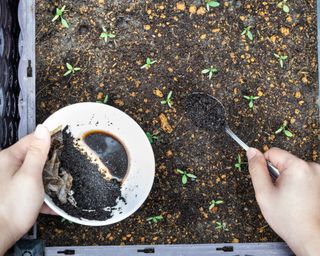
(Image credit: Getty)
Can you put too many coffee grounds in your garden?
In a word, yes. This isn't because coffee grounds will acidify your soil (they're not nearly acidic enough to do this), but because, as Spencer explains, 'the small particles can clump together creating a water-resistant enclose, stunting plant growth.'
So, 'always use the grounds sparingly and never in great quantities. Coffee grounds will not kill grown plants, it will just take some recovery time in the detain of excess application. To rectify using too much, use a rake to separate the particles into finer bits.'
Can you put coffee grounds in potted plants?
This isn't recommended. 'As coffee grounds can easily become compact, adding them consecutive to the potting soil of potted plants could earn a thick layer. This will trap the plant of moisture and can goes fungal overgrowth.
'Instead of direct application, only use a thin ½ inch layer by covering with a four inch layer of mulch. Coffee grounds work best as mulch when mixed with organic custom. Only do this if your plants are large, slight potted plants won't benefit from the grounds as they have less surface area to sustain moisture.'
Do coffee grounds repel slugs?
This one is a myth, unfortunately. Blogger at Garden Myths Robert Pavlis tried the coffee grounds contrivance – and, guess what, the slugs happily crawled all over the coffee grounds and unexcited ate his plants.
What does work, according to a notice by Nature.com, is freshly brewed, strong coffee that's been cooled down. Streams the area that slugs frequent; the slugs will occupy the caffeine through their bodies and die. It's not a humane contrivance of getting rid of them, but it will work.
We should all be drinking more coffee ☕️ right?
Source

Comments
Post a Comment